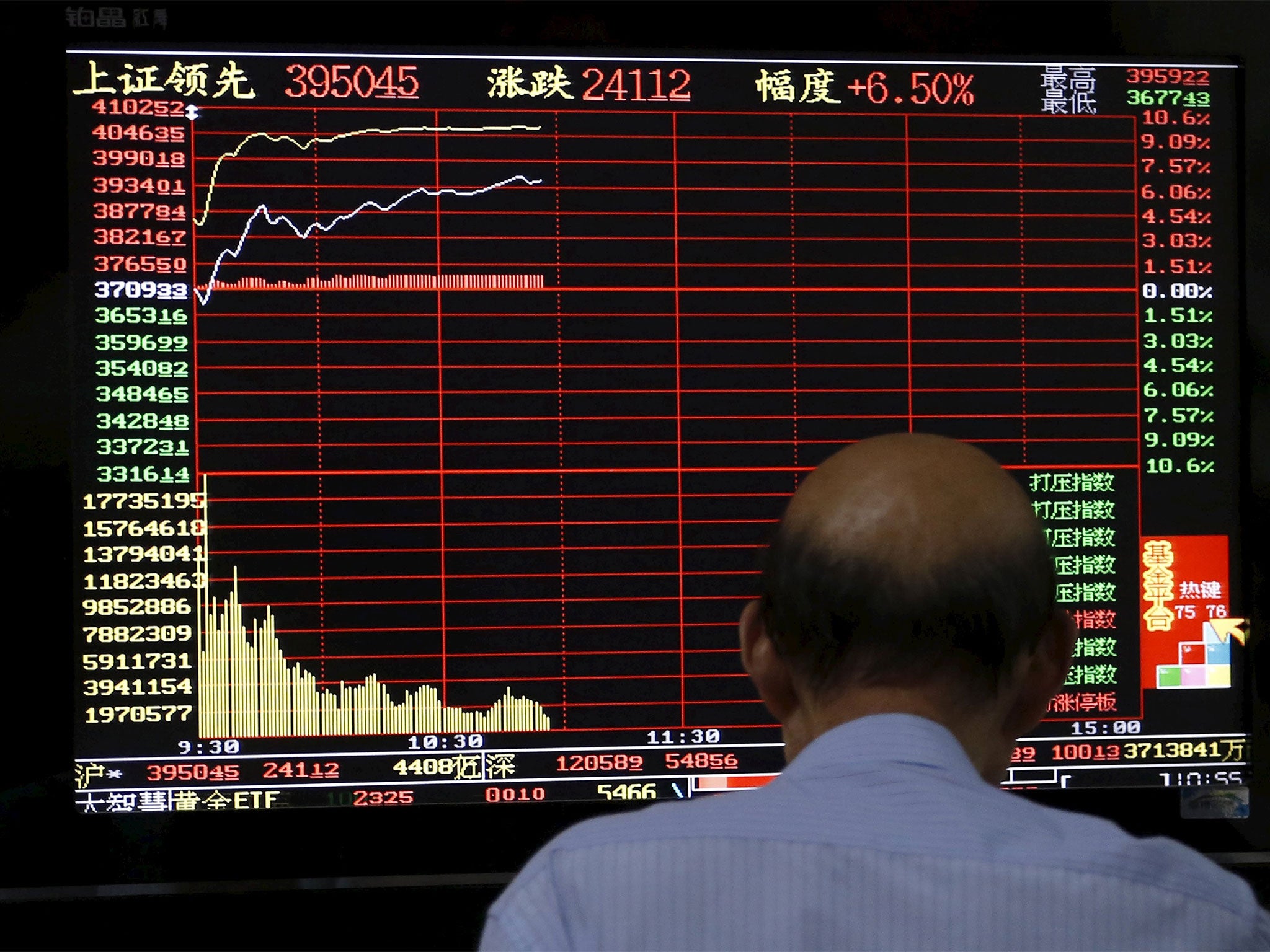China's stock market crash, Greece crisis: how do they affect your finances?
Video: Tom Stevenson, investment director at Fidelity Worldwide Investments, says it’s good to be aware of what’s going on in the world

Your support helps us to tell the story
From reproductive rights to climate change to Big Tech, The Independent is on the ground when the story is developing. Whether it's investigating the financials of Elon Musk's pro-Trump PAC or producing our latest documentary, 'The A Word', which shines a light on the American women fighting for reproductive rights, we know how important it is to parse out the facts from the messaging.
At such a critical moment in US history, we need reporters on the ground. Your donation allows us to keep sending journalists to speak to both sides of the story.
The Independent is trusted by Americans across the entire political spectrum. And unlike many other quality news outlets, we choose not to lock Americans out of our reporting and analysis with paywalls. We believe quality journalism should be available to everyone, paid for by those who can afford it.
Your support makes all the difference.Recent global headlines have been alarming with Greece almost going bust, China’s stock market collapsing and atrocities in the likes of Tunisia. But how do they affect your finances
Tom Stevenson, investment director at Fidelity Worldwide Investments, says it’s good to be aware of what’s going on in the world but, for investors, it’s more important to be conscious of the long-term themes that are driving your investment decisions.
“For instance, the long-term story in China is very positive,” he says. “The economy is growing much faster than in many developed countries.” So the recent stock market slumps are just short-term issues, not linked to the long-term growth of the economy, he says which will leave long-term investors still looking at a tidy profit and with plenty of future potential.
“You have to stand back from the short-term noise and decide where you want to be invested,” he advises. “More importantly you should ensue your portfolio is diversified so you don’t end up taking a major hit from just one problem.”
It’s all about managing the risk, he explains in the video. Experienced investors will have managed their exposure to Greece, for instance, long before the recent problems in the country.
We should use the news headlines to our advantage,” Tom concludes. “The Greece news, for instance, is likely to be good for the EU over the longer term so we investors may want to adjust their portfolios in line with that potential.”
Join our commenting forum
Join thought-provoking conversations, follow other Independent readers and see their replies
Comments